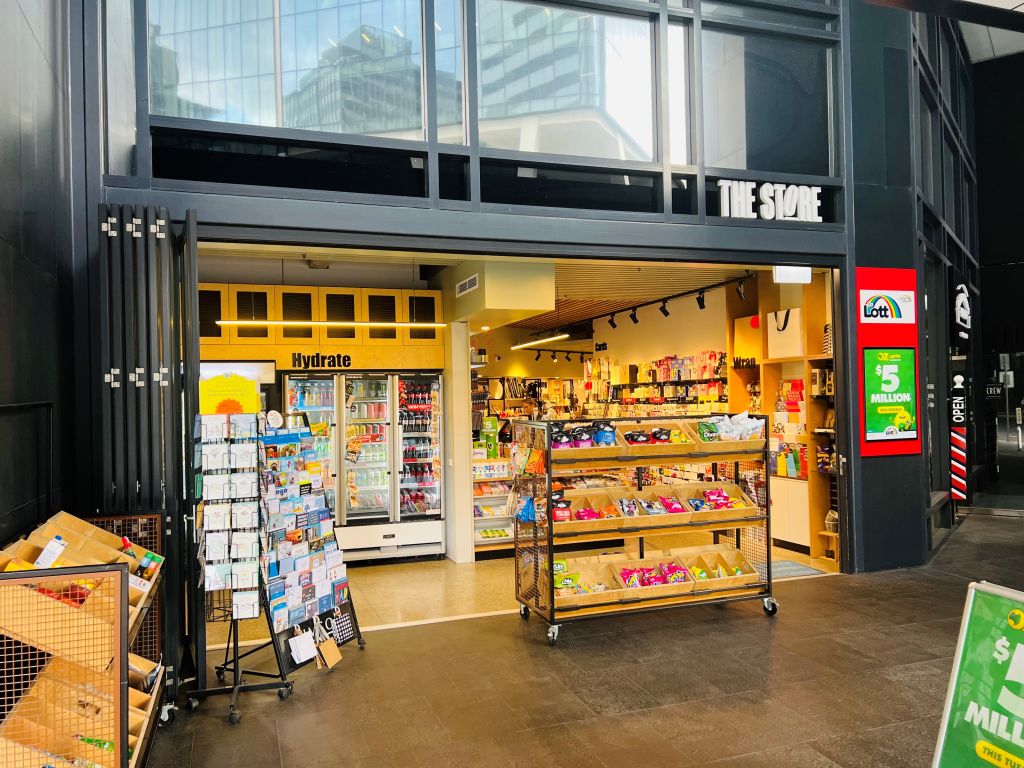
A guide to buying a business in Australia
Buying a business in Australia isn’t as hard as you may think. But buying a good business and making a great go of it is appreciably more difficult.
But if you abide by a few simple rules, say the experts, it can be much easier to buy an existing business and run it successfully and profitably than start one from scratch.
“It’s a good time now to buy a business,” says Leonard Bongiovanni, director of Sydney business brokers Manenti Quinlan & Associates. “People like to be masters of their own domain, so often want to buy a business as then they can be their own boss.
“They see it as giving them more freedom than being tied down to someone else’s business, and rather than working for a wage, it can be a way of improving their income. It’s always a very inviting prospect.”
Yet, there’s invariably a lot of backroom investigation into a business that has to be done before the decision to buy, as well as plenty of personal introspection.
How to buy a business
Step 1. Assess if you’re ready to buy a business
Taking on a business means you’ll often have to work long hours, especially in the first year, and it can be challenging to deal with issues on your own, particularly if you’ve previously worked for a company with good support in place.
The federal government’s business portal business.gov.au advises that, when thinking about how to buy a business, you really need to check first whether you’re business ready. Do you have the right skills, enough time, the self-discipline and the emotional and physical resilience?
Critically, you also need to make sure you have finance to buy a business in Australia. Do you have enough capital to buy the business, and to invest in it, and to continue to run it? Since most businesses fail because of a lack of capital, that’s crucial.
“A lot of banks these days don’t like lending to small business, so you need to make sure you have enough money, or access to money, to make the business successful,” says Peter McNeil, a business broker at LJ Hooker Commercial Brisbane.
“Many of our business buyers today are cash buyers. There are more restrictions on borrowing these days, and with interest rates rising, it can be more expensive to borrow, too.”
It’s still easier, however, for established businesses to get financial backing from banks rather than someone with the idea of starting their own business from scratch.
Step 2. Determine the type of business you want to buy and do your research
Take a close look at yourself, your lifestyle and your willingness to spend as much time as is necessary on the business before you make the decision to buy a business.
“You need to have some sort of commitment to the business for the long term,” says Ken Li, the head of First Choice Business Brokers in Box Hill, Victoria. “You need dedication and you often also need patience. Check on your family commitments and your lifestyle, too. Do you seriously have room for a business in your life, or will the impact on your family be too great?
“It will be something that takes up so much of your time, so you need to make sure it’s something, or in an industry, you’ll enjoy.”
McNeil, before he moved into business broking, ran a newsagents shop with his wife for 20 years. “It was 24-7,” he recalls. “And if you’re not physically there, you’re still thinking about it. I sold in 2004, but they’re good businesses now with the lottery. But you have to be prepared to put in the time.”
It’s important to try to work out if you have the right personality for a particular business too, advises Bongiovanni.
One business might perform well for one kind of person, but not for another. “A business might not be going well for the current owner, but could go fantastically well for the next guy if he has the right kind of personality for it,” he says.
Praveen Pant of Tasmanian Business and Property Sales agrees. “Some businesses rely on the operator’s personality and whether they’re customer-friendly,” he says.
“As well as having to be dedicated and determined when buying a business in Australia, you might also have to put effort into welcoming customers and putting on a good face to them all the time.”
Step 3. Understand your financials, start-up and running costs of the business
Doing your due diligence when buying a business is vital. You should check everything about the business, especially the accounts – and have them run over by an expert for anything you might miss. The questions to ask when buying a business include those about profit, loss, debts, financial obligations and any leases being held.
“The very first thing you should do when buying a business is look at the profit and loss statements,” says Pant. “You should then work out what kind of return you’ll have on your investment.
“Most of our buyers want to get a 100 per cent return on their investment within a year or so but everyone should calculate how long it will take before they get their money back.”
If a business looks as if it’s making a loss, then a potential buyer needs to be very confident before they take that risk that they can turn it around quickly, Pant advises. If it’s not making a great profit, they also have to investigate why, and whether they could make a better job of it.
“There’s a good degree of investigation that’s always required,” he says. “It’s all about asking questions, and the right questions.”
Trading viability is one aspect, but also, says Bongiovanni – whose company specialises in pubs and liquor stores as well as general business – will it generate enough income for your needs?
Step 4. Start your search
Commercial Real Estate has an enormous number of businesses for sale at any one time, and other corporations advertise franchising opportunities regularly. Check out all of them, as well as approaching brokers about possibilities.
A franchise can be a good way to start a business if it’s with a well-known brand or one that looks as if it has excellent potential. Many companies will support franchisees to get started, and most of the business decisions about products and markets and pricing structures are already made.
Research by the Franchise Relationships Institute found that when businesses convert from a company managed unit to franchisee operated, performance improves, particularly in the areas of sales growth and cost control, usually because the operator has skin in the game.
On the other hand, it’s vitally important to check all the conditions and to see whether other franchisees are actually making the money the one for sale says it is, and to make sure it’s viable under regular business conditions (e.g. not relying on underpaying its employees).
Step 5. Carry out due diligence
A buyer also has to make sure they’re being supplied with the correct information about the business. With some company owners keeping two sets of books – illegally – the purchaser has to be certain they’re being presented with the true picture.
McNeil says that’s something to look out for. “Make sure that the numbers you’re receiving are the right numbers,” he says. “It’s so important to do your homework, and all your due diligence.”
As well as investigating the business itself, buyers should also be looking closely at the industry they’re planning to enter. “Buyers, if they don’t already know the industry, should get to know it,” recommends Li.
“Is the industry healthy at the moment, and what are its future prospects? Is it a growing industry, or is it fading? You’ve got to find out as much about the industry as you can.”
At that point, it might also be worth investing in some market research to ensure you fully understand the potential of the industry.
The three main rules, according to McNeil, are the same as when buying residential property: location, location, location.
“You have to make sure the business is in the right spot, with plenty of passing trade,” says McNeil, whose company has 59 businesses on its books for sale currently. “It can be much harder for a retail store, for instance, if it’s tucked away and out of sight of potential trade.”
What is the value of the company now, and what will it be like in the future? What’s the condition of its plant and equipment and stores? Is the inventory included in the business price or will that be an extra? What licences and permits are in place, are there any existing debts, and what agreements might you have to honour?
And perhaps, most importantly of all, how much potential is there for growth?
Step 6. Make an offer
When you’ve settled on the right business to buy and you have your finance ready – and have assessed any additional costs like legal fees – then it’s time to make an offer.
That should be made to the agent or vendor in writing, Core Business Brokers advise. That could be an actual document delivered to the seller’s office, an email or a fax. A verbal offer might be considered, but the details should always be in writing, with a copy kept by the buyer.
The offer should include any conditions you have, for instance needing training on how the business operates or a delayed settlement. When the vendor or agent agrees to meet those terms, again in writing, then you’ll usually have to put down a 10 per cent deposit for the business to be withdrawn from sale.
That amount is refundable until contracts are exchanged and settlement becomes due.
Step 7. Organise the paperwork
When your offer is accepted, you need to make sure all the paperwork you’ll need for running your new business is in order, as well as your registration.
Your earlier checks may have revealed you need a licence or permit to run the business, so you need to apply for that.
These always vary between states and types of businesses, so you have to make sure you’re applying for the right paperwork for both your area and your industry. It’s always a good idea to speak to the industry association in your state to find out any changes that might be coming up, or any additional requirements that may have recently come in.










